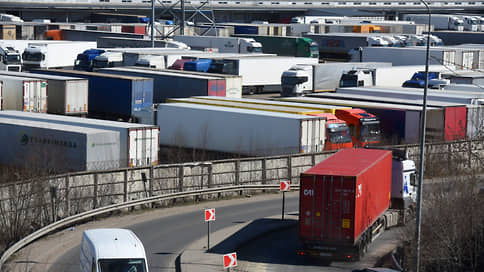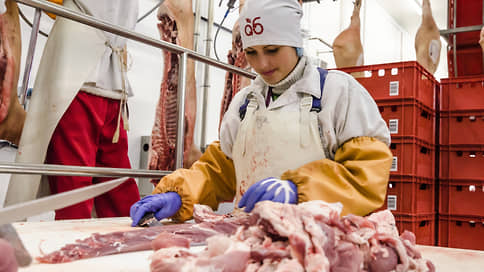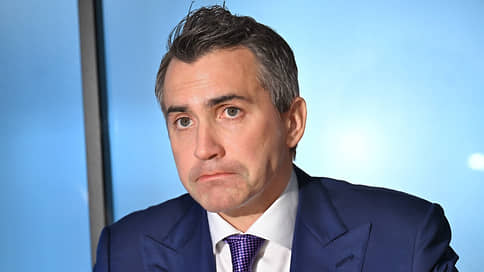Demand for internal automobile cargo transportation is reduced

Participants in the market of automobile cargo transportation note the deepening of prices for their services and reducing domestic demand. In companies, this is associated with an euphoria caused by the growth of the market in previous years, which prompted carriers to purchase equipment in expensive leasing, which is why many are now working below the cost, just to avoid the downtime of the park. Carriers do not expect a quick increase in prices.
Demand for internal automobile cargo transportation in the first quarter decreased by 1% year by the year, the ATI.Su cargo exchange rate calculated the cargo transportation exchange. In relation to the fourth quarter, the indicator fell by 14%, which is explained by the traditional correction after the aged New Year period. The deputy director of the PEC Vadim Filatov says that the “historical value of the imbalance of goods and affordable transport” was recorded in internal transportation: the ATRUCKS analyst indicator reflecting the balance between the offer and free transport, by February 3, was lowered to minus 77 points, which was lower than the level of spring 2020, when there was a pandemic. But now the situation is restored, he notes. Deputy Director General of NC Logistic Logistic, Artem Vaskanyan, evaluates the fall of internal cargo transportation at 30%.
The average rates for transportation around the country are reported in ATI.SU, by early April they decreased by 12.1% per year, « and this decrease provided for the last three months (by 13% compared to the end of 2024). » Director of Management of Data Monopoly Platform Alexander Podroshchenko says that according to the results of the quarter, the rates of bets in all internal directions and types of trailers, calculated by the platform, was reduced by 9.83%, the weighted average rate amounted to 65.4 rubles. for 1 km. At the same time, he adds, in March there was a reason for cautious optimism: the rate in Russia grew up to 66.5 rubles. For 1 km, and in April she went to the plateau.
The founder and director of ATI.SU Svyatoslav Wilde says that, taking into account inflation, freight prices in real terms decreased by about 25%. “The reasons for violating the balance of supply and demand in the market are towards excess supply,” he explains. “Last year, the volume of the cargo park has increased significantly in the country. Market players invested in the purchase of Chinese trucks, hoping that the growth of bets that were observed since the fall of 2023 will continue. But demand has not grown. ” At the peak of tariff growth, the carriers received superprofits, says the head of the logistics department of SLK Alexei Zhudalin: in euphoria they purchased equipment for leasing on unprofitable conditions, which led them to current losses.
Artem Vaskanyan says that since August last year there has been a significant decrease in the cargo base and a drop in bets, which now often do not even cover the cost. According to him, the apparent increase in cargo transportation in previous years was associated not with an increase in the volume of cargo transported, but with an increase in the number of logistics operations in connection with the active development of marketplaces. “In order to occupy a large market share, they began to offer final consumers favorable conditions for the delivery of even small orders. Buying online is an opportunity to quickly get a product and, if necessary, immediately return. In fact, the total volumes of transported goods remained the same, only the number of deliveries increased, ”explains Mr. Vaskanyan. He believes that the situation resembles a financial bubble when the visible increase in the number and complexity of operations is not supported by real added value. And many entrepreneurs, having underestimated the risks, issued equipment for leasing at burdensome interest, which led to serious financial problems, Artem Vaskanyan points out.
According to him, since November last year, cases of downtime (up to 30%) have become more frequent, and free drivers appeared on the market, which indicates a reduction in demand. “Due to financial difficulties, carriers began to rent their transport in order to somehow cover leasing payments,” adds Mr. Vaskanyan. “For example, some companies pay for one tractor up to 600 thousand rubles. per month « . Dmitry Urmayev, head of the Boxberry, development department, notes that some players are actively investing in the creation of their own fleets, gradually abandoning the services of third -party transport companies. “As a result, some of the carriers were forced to leave the market,” he says. “Nevertheless, it is still quite saturated, and the remaining participants are trying to maintain competitiveness by all means.”
At the same time, ATI.Su fixes a sharp increase in the number of transportation applications in international message: by 35% for delivery to Russia and 72% for transportation from the country. “However, prices remained at last year’s level,” said at Ati.su. However, not everyone agrees with the exchange. Evgeny Dyatlov, Director of the FM Logistic International Transportation Directorate, says that the cargo flow in the first quarter approximately corresponds to the first quarter of last year. The Chinese direction shows similar dynamics in terms of transportation, and the tariffs for the delivery of goods from China sank by about 10% by the year, he continues, celebrating the factor of holidays in Russia and China. But the main factor in the reduction in tariffs, says Mr. Dyatlov, is the entering the transportation market in the China -Russia report and vice versa of a large number of “new” transport contractors. “Over the past year, the main Russian transport companies operating in the domestic market began to provide an international delivery of goods from border Chinese warehouses,” he explains. “They were forced to do this due to a serious decrease in the volume of intra-Russian transportation over the past year.” Yuri Fioshkin, deputy general director for multimodal transportation BMJ-Logistics, also says that the increase in import applications has not yet been observed, while the prices for international transportation in the first quarter have fallen in separate areas below the cost, and « many carriers, for example, in European areas, work at a loss. »
As far as the fall will last, it is very difficult to predict, says Alexey Zhudalin: “So far the market is restored, the rates will remain low, and the competition will be high.” In 2024, many goods were imported into Russia, the transcerator general director Alexander Sobolev recalls, the warehouses were filled, and so far they are not freed, large volumes of imports in the Russian Federation are not expected. “I think it will take three to four months to change this situation,” he notes. A certain rise in betting – within 5-10% – can be expected in May, Yuri Fioshkin believes. Given the growing demand for auto transportation from China and a limited offer in the near future, tariffs in this direction will begin to increase, including deliveries from other Asian countries, he adds.








:format(webp)/s3/static.nrc.nl/images/gn4/stripped/data132852852-db78fb.jpg)